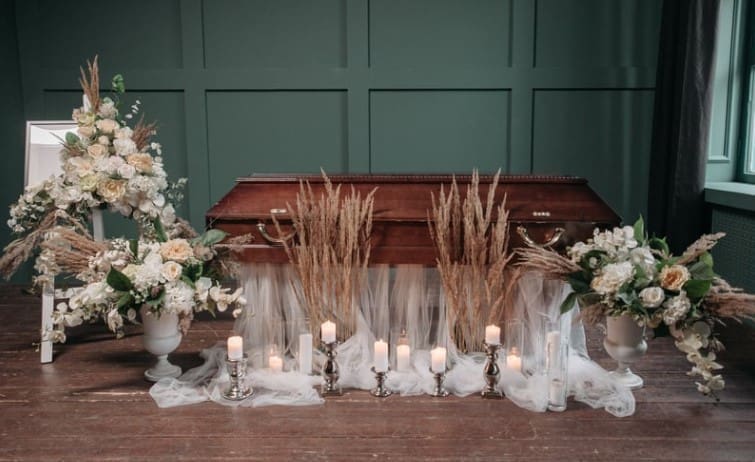 While the topic of death is often avoided, Create a Great Funeral Day provides an opportunity to reframe how we view funerals—not as somber, obligatory ceremonies but as meaningful celebrations of life.
While the topic of death is often avoided, Create a Great Funeral Day provides an opportunity to reframe how we view funerals—not as somber, obligatory ceremonies but as meaningful celebrations of life.
Understanding the history and purpose of this day reveals how it has evolved to address deep cultural needs and taboos surrounding death and why planning a great funeral is so important.
The History and Origins of “Create a Great Funeral Day”
“Create a Great Funeral Day,” observed annually on October 30th, is a unique and thoughtful day that encourages people to reflect on their own funeral plans and those of loved ones.
The day was founded in 1999 by Stephanie West Allen, a lawyer, speaker, and author who has spent much of her career encouraging people to face difficult life transitions with honesty and grace.
Allen’s inspiration for the day came from her personal experience. After dealing with the aftermath of her husband’s father’s funeral, which had been poorly planned and stressful, she realized how much of a burden unplanned or improperly planned funerals can place on grieving families.
Through her work, Allen saw that many people avoided talking about their own funerals or those of their loved ones because the subject of death is often seen as uncomfortable or even taboo.
However, she believed that planning a funeral should be seen as a gift to those left behind—a way of ensuring that the funeral reflects the values, beliefs, and memories of the deceased, while also giving survivors a meaningful and healing way to say goodbye.
Related Post: Probate Avoidance Mistakes
The Purpose Behind the Day
The core idea of “Create a Great Funeral Day” is to encourage people to plan their funerals in advance. By doing so, they take control of how they will be remembered and relieve their families of the emotional and financial stress that often accompanies funeral planning during a time of grief.
Planning a funeral ahead of time allows individuals to ensure that their wishes are respected and that the funeral will truly celebrate their life in a meaningful way.
It’s also about having conversations about death and dying, topics that many cultures tend to shy away from. The day prompts us to think about death in a practical, yet reflective manner.
It encourages families to talk about their preferences, whether they want a traditional religious service or a more personalized celebration of life.
Discussions about burial versus cremation, favorite songs, special readings, or even unique elements like videos or memory tables can be shared openly, removing some of the emotional strain from these decisions later on.
Related Post: Is There a Transfer on Death Deed in CT?
Cultural Relevance and Shifting Attitudes Toward Funerals
In Western societies, especially in the United States, funerals have long been viewed as somber events, often following strict traditional formats. However, attitudes toward death and funerals have been slowly shifting. Increasingly, people are looking for more personalized ways to commemorate their loved ones, opting for celebrations of life, green burials, and less formal services.
Planning a funeral has become an important part of this broader cultural movement toward demystifying death and encouraging conversations about end-of-life preferences.
The day also complements growing trends in “death positivity,” a cultural shift that encourages people to be more open about death and to accept it as a natural part of life. Movements like “death cafés,” where people gather to talk openly about mortality, and the rise of alternative funeral options reflect this change in perspective.
Related Post: What Is a Green Burial? Is It More Cost Effective?
How to Observe the Day
Observing “Create a Great Funeral Day” can be deeply personal. Some people use the day to start writing their funeral plans, outlining preferences for readings, music, or eulogies.
A recent colleague of ours passed away and prepared a heartfelt letter that his son read at his funeral service. In the letter, he named everyone who had an impact in his life, creating a meaningful letter of gratitude for most of the people in attendance. It was a beautiful way to ensure the people who you love know how much they meant to you.
Others take the opportunity to have meaningful conversations with loved ones about their wishes. It can also be a time to reflect on one’s own life, considering the legacy one hopes to leave behind.
For those who are already planning their funerals, it might be a time to update or fine-tune existing plans. For others, it could be a chance to explore creative ideas, such as creating a personalized ceremony or thinking of ways to involve the community in celebrating a life.
Conclusion
While it may seem unusual at first glance, “Create a Great Funeral Day” is an important reminder that funerals can be celebrations of life, not just occasions for mourning.
By planning ahead and opening up conversations about death, we can remove some of the fear and discomfort surrounding this inevitable part of life. In doing so, we not only prepare ourselves for the future but also give a priceless gift of clarity, comfort, and peace of mind to those we leave behind.
While many people know that pre-planning the details of your funeral is a valuable spend-down strategy when the cost of long-term care requires applying for Medicaid, pre-planning also removes the burden of making detailed decisions from the decedent’s loved ones when they are grieving.
Finally, spending time to create a great funeral can make the day much more meaningful for the loved ones left behind.
Disclaimer: The information provided in this article does not, and is not intended to, constitute legal advice and is for general informational purposes only.
Let Us Know How We Can Help!
Please fill in your contact information and a brief message about what you need help with. A consultation will need to be scheduled in order to provide legal guidance.
Marketing & Technology Director at RWC, LLC, Attorneys & Counselors at Law
Ukraine born and Israel / Miami, FL raised. University of Miami graduate in the Marketing field.
Mom to a girl, a boy, and a Siberian Husky.







